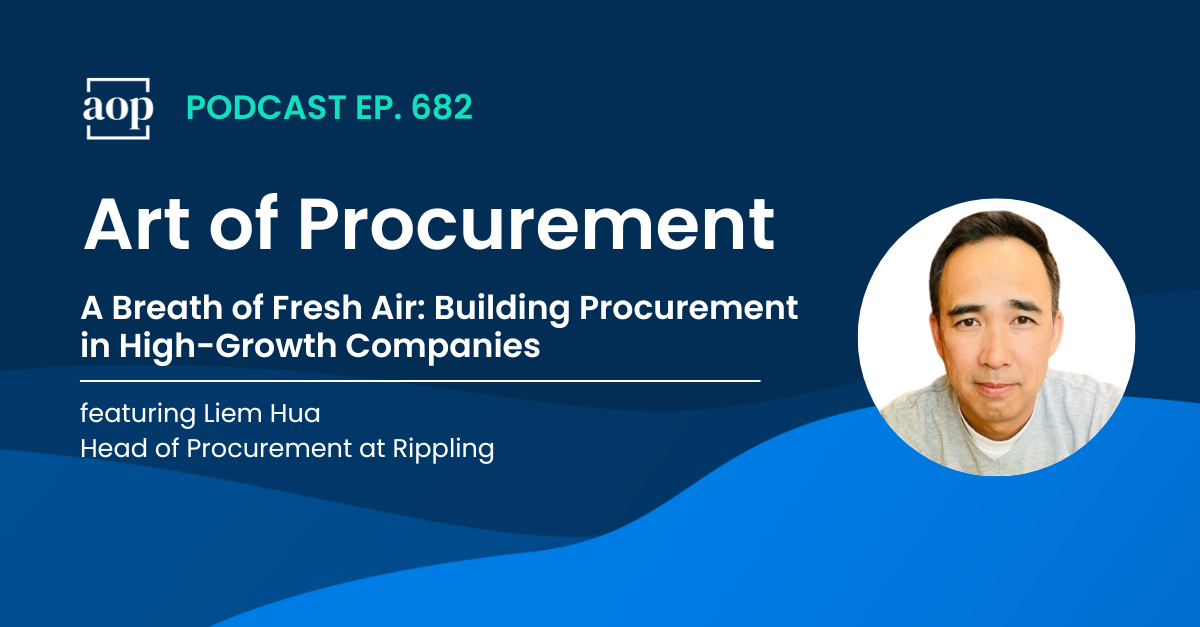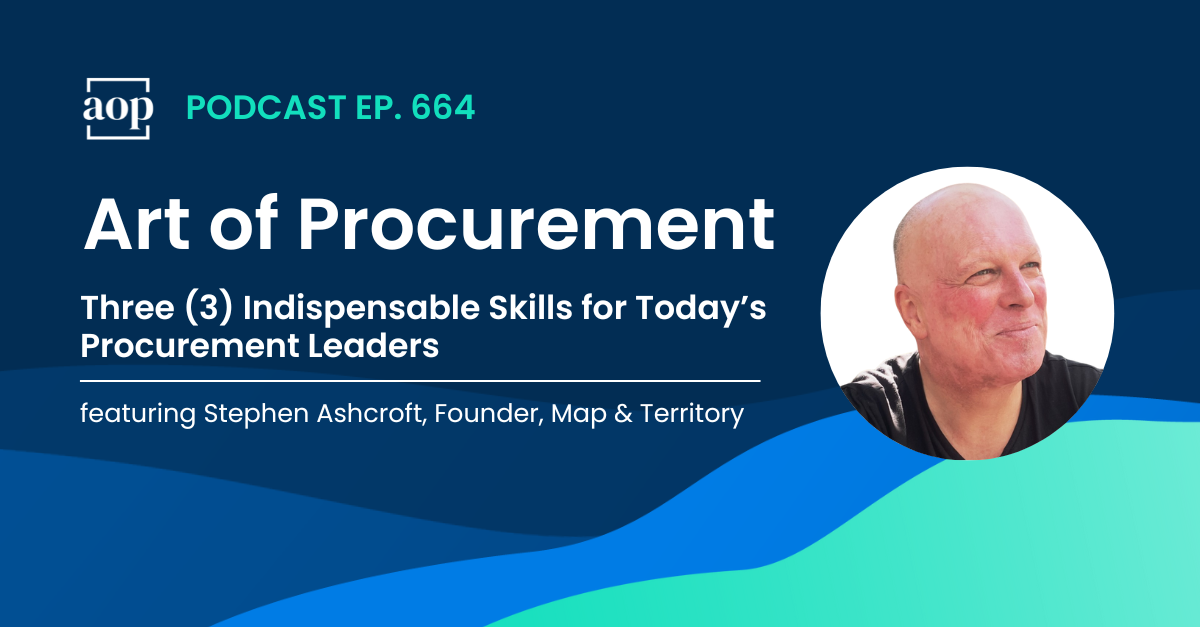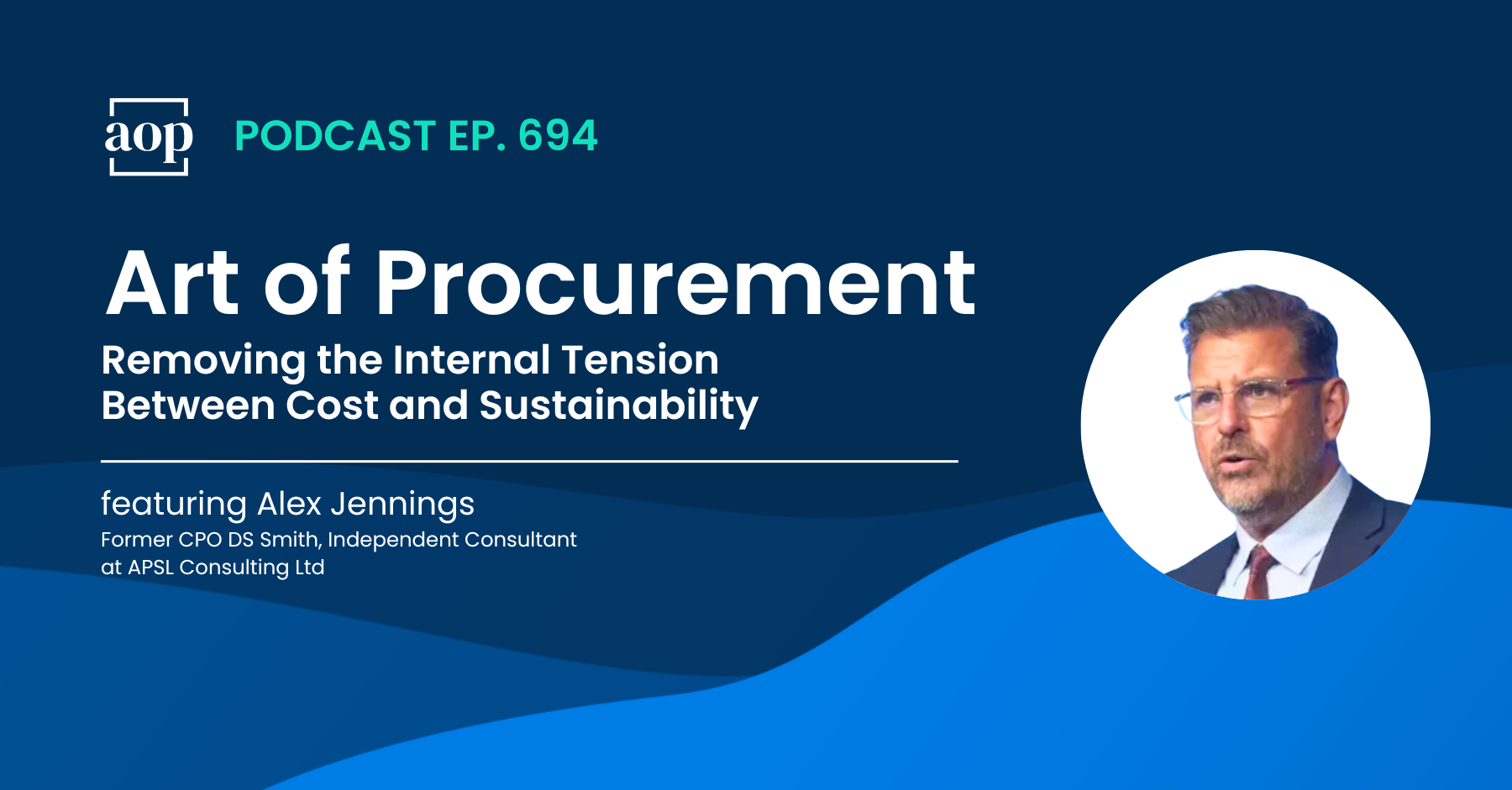3 min read
A Breath of Fresh Air: Building Procurement in High-Growth Companies
Philip Ideson : Updated on December 1, 2024

“At larger traditional companies, there is a common theme in procurement that ‘I need a seat at the table, and I need to justify to you why I am in this room with you.’ But a startup is actually a breath of fresh air. There are not that many tables, so you are at the table, regardless of whether you like it or not.”– Liem Hua, Head of Procurement at Rippling
A startup or high-growth business is a unique environment in which to build and scale a procurement team. The same norms or expectations that define the game at larger, more traditional corporations just don’t apply. Procurement often has to adjust their approaches or processes to understand what value creation looks like when growth and speed are top priority.
In a recent Art of Procurement podcast episode, I spoke with Liem Hua, Head of Procurement at Rippling. Liem has held a number of different roles at startups and high-growth companies, but he’s also worked for large corporations like Delta Airlines, and he understands the kind of code-switching procurement has to engage in depending on their environment.
According to Liem, there are many things that can distinguish procurement in a startup versus traditional organization, but one of the most important is getting the team right. This can look quite different at a startup, he says.
“I have the philosophy that you don’t need a large procurement team or sourcing team,” said Liem when discussing how to build the ideal procurement team for a startup. “I try to put that feather in my cap as well when I join companies, and I tell them ‘When you hire me, I’m not the person who is going to come in and say I need 10 people.’”
So, what does the ideal procurement team or skill set look like in a startup or high-growth environment? Liem recommends two core categories of procurement hires:
1. Contract-Focused Hire
For the source-to-contract side, Liem says most startups need one hire that is very strong in supporting, writing, negotiating, and managing contracts for the business. “They have to be good with people, and they have to be a negotiator both internally and externally,” he said. Strong interpersonal and communication skills are valuable to this role and a key part of relationship building. Ultimately, the stronger the contract, the more value and benefit it can bring to the business.
Finding the right combination of hard skills around building contracts along with the soft skills of communication, negotiation, and relationship management isn’t always easy in a startup environment, though, because many practitioners are most likely to develop this skill set through the formal training programs offered by larger corporations.
Someone skilled in contracts should also have equally strong administrative and financial analysis skills, says Liem, because they’ll likely be responsible for overseeing compliance and making sure procurement is keeping up with their financial partners.
What Liem says he doesn’t look for as a part of the startup’s core team is another category manager. With a contracts expert as support, he can keep the team lean and efficient – two invaluable markers for most startups.
2. Operations Expert
The ideal procurement operations hire is someone who, as Liem says, “gets the details” from procure-to-pay and makes sure “things are actually going through the way they should be.”
They are knee-deep in processes and systems and understand how to build a strong framework for a startup that might not otherwise have those processes in place.
In a startup, resources are often tight. The procurement ops role might end up taking on some additional tasks beyond the core procure-to-pay function, like onboarding, spend analysis, or helping to identify additional areas for cost savings. Like the rest of the team, they should be adaptable and agile with the ability to learn and adjust quickly as the business matures.
Slimmed-Down Procurement
Building a procurement team for a startup requires a focus on efficiency and adaptability so they can support the growth goals of the business. As Liem explained, his ideal team isn’t about size, but about having just the right skill sets to navigate the unique challenges, opportunities, and goals that come with operating in a startup environment.
“When you talk about procurement in a startup, the definition is all over the board. If they want you to do procure-to-pay, that is very different from source-to-contract, and you need to understand which resources you need on either side of those cycles to do your role.”
Subscribe to Art of Procurement
Apple | Stitcher | iHeart Radio | Email




